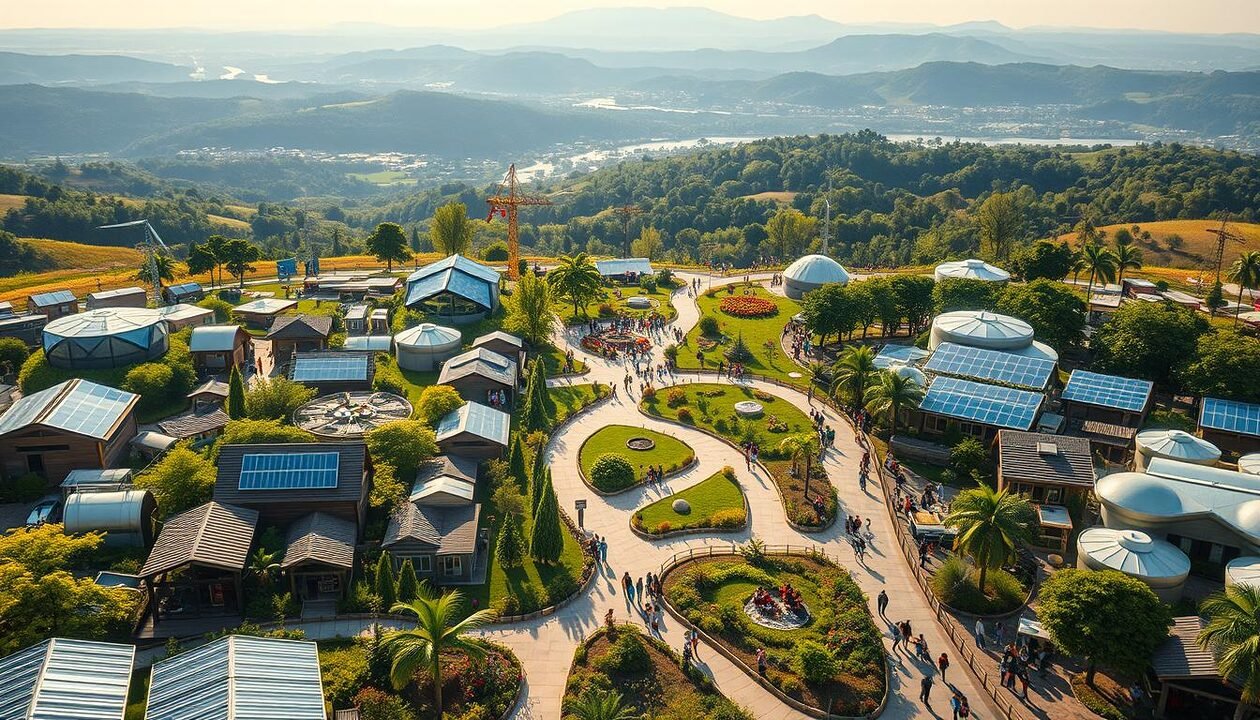Sustainable development is now at the heart of corporate strategies. In this context, the role of CSR officer is becoming increasingly important, particularly in sectors such as construction. This professional plays a central role in integrating social and environmental issues into company practices. Their work is based on three fundamental pillars: environmental, economic, and social. In the construction sector, the challenges are specific: waste management, the circular economy, and carbon footprint reduction. Expert platforms such as reseauBeep.fr support these professionals committed to the ecological transition.
The CSRD directive also reinforces the importance of this role by requiring more transparent non-financial reporting. The CSR Manager must therefore balance operational responsibilities with strategic vision. Key points to remember about a CSR Manager in 2025
Pivotal role in the sustainable transformation of companies
Challenges specific to the construction and public works sector
Three pillars of action: environment, economy, and social issues
- Growing impact of regulations (CSRD)
- Dual strategic and operational skills required
- Introduction to the CSR Manager profession
- The challenges of sustainable development are redefining roles in companies. With 87% of positions on permanent contracts and 1,190 job seekers, this profession combines technical expertise and strategic vision.
- What is a CSR Manager?
This professional leads the ecological and social transformation of organizations. Unlike ESG criteria (used by investors), CSR is based on a voluntary approach.
“Integrating the environment into corporate strategy is no longer an option, but a necessity.” The importance of CSR in the construction sector Construction generates 23% of French CO₂ emissions. Certifications such as ISO 14001 or Qualitel are becoming major assets for winning contracts.
Key stakeholders: project owners, material suppliers.
Regulatory reference: RE2020 standard and tertiary decree. Concrete example: the clean construction site charter, implemented with the support of platforms such as reseauBeep.fr, reduces the environmental impact of projects. The main missions of the CSR manager
Reconciling economic performance and positive impact is at the heart of CSR missions. This professional acts as a catalyst for change, aligning the company’s objectives with the imperatives of sustainable development.
CSR assessment and diagnosis
The first step consists of conducting a comprehensive audit. A materiality matrix identifies priority issues, such as waste management or energy efficiency. CSR Assessment in Buildings
- CSR Assessment in Buildings 7 structured steps with SMART indicators (specific, measurable, achievable, relevant, time-bound).
- Life Cycle Analysis (LCA) of materials to measure environmental impact. Definition and Implementation of the CSR Strategy
Once the assessment is complete, the CSR manager develops an action plan aligned with the Sustainable Development Goals (SDGs). For example, reducing construction site waste by 30% in 18 months through the circular economy. Recommended Tools:Carbon calculation software (Greenly, Sami) to quantify emissions.
Targeted training for teams (electricians, plasterers).
Internal Communication and Awareness The success of a sustainable strategy depends on employee buy-in. Practical workshops and visual dashboards (with KPI alerts) encourage engagement. “Raising awareness without coercion is the art of the CSR manager.” Reporting and performance evaluation Reporting Regular monitoring allows for the adjustment of actions. It now incorporates the requirements of the European Green Taxonomy, with comparable and transparent data.
Example of a monitoring table:
Indicator 2023 Target Result

- -12% Waste Recycled 80%
- 75%
Key Skills to Become a CSR Manager
To manage a sustainable strategy, three types of skills are essential. They combine technical expertise, interpersonal intelligence, and legal monitoring. A good balance between these pillars allows for the transformation of commitments into concrete actions.Technical and Managerial Expertise Mastery of tools such as the carbon footprint (BEGES method) is crucial. These skills make it possible to assess the environmental impact of projects, particularly in the construction industry. Managing multidisciplinary teams is equally vital. Leading management committees or negotiating CSR clauses with suppliers requires great adaptability.
Soft Skills and Personal Qualities
- The ability to unite around a common vision is essential. Transformational leadership encourages buy-in to change, even in SMEs.
- Example: rolling out a low-carbon mobility plan for 500 employees requires persuasion and education.
Regulatory and Standards Knowledge
Regulations are evolving rapidly (AGEC law, RE2020). Active monitoring of ISO 26000 standards or ADEME calls for projects is essential. This knowledge ensures compliance and opens up funding opportunities. Training and Career Pathways
Accessing this strategic position requires a combination of specialized degrees and practical skills. Recruiters favor candidates who can combine technical know-how with a cross-functional vision of sustainable development. Sustainable development training
Sustainable development training
Valued diplomas and certifications A Bac+5 constitutes the minimum requirement, with several possible paths. Engineering schools with environmental options (ESTP, Mines ParisTech) offer a solid foundation.Professional certifications effectively complement initial studies. They demonstrate operational expertise to employers. Type of trainingDuration
Organization
| Master’s in CSR | 2 years | Paris-Dauphine University, CNAM |
|---|---|---|
| CSR Manager (AFNOR) | 5 days | Certification Center |
| Carbon Footprint Expert | 3 months | ABC (Association Bilan Carbone) |
Acquire field experience
A minimum of three years in QHSEor responsible purchasing are often required. Internships in thermal design offices allow for mastery of regulatory tools.
“My time on construction sites as a team leader gave me the credibility needed to lead our low-carbon strategy.”
Léon D., CSR Manager in the construction industry Hybrid programs are multiplying, combining theoretical courses with company assignments. Partnerships with eco-districts offer concrete examples of application. Dual skills: complement a technical diploma with a specialized master’s degree
Networking: participate in CSR Observatory working groups Active monitoring: monitor calls for projects from ADEME and the regions Salary and career prospects
The sustainable development officer profession offers attractive compensation and varied career paths. With growing demand in this field, professionals can build a rich and rewarding career path.
Salary range according to experience and sector Salaries vary considerably based on several criteria. Here are the main influencing factors: Experience: from €35,000 for a junior to €120,000 gross annual salary for an expert
Sector of activity: energy and construction offer the best compensation
Company size: large groups offer more comprehensive packages
Variable bonuses can represent up to 20% of the base salary. They are often linked to the achievement of defined CSR objectives. Career Opportunities and Possible Advancements This position opens up numerous career opportunities. The most common career paths include:Sustainable Development ManagementIndependent Consulting to Support Several Companies Specializing in Areas Such as the Circular EconomyAccording to a recent study, job openings have increased by 15% in three years. The most promising sectors are:
Sustainable Real Estate
Waste Management
Renewable Energy “I started as an environmental technician before moving into a strategic position. Versatility is the key to advancement.” Marie L., CSR Director in the Energy Sector

The Challenges of the Environmental Transition
The circularity of materials is becoming imperative. Professionals must, in particular: Optimize construction site waste management Develop the use of bio-sourced materials
Integrate TCFD scenarios to anticipate climate risks The RE2020 is accelerating this transition. For example, it requires a 30% reduction in the carbon impact of new construction by 2030. Impact of International Regulations and Standards
| The CSRD 2024 directive strengthens reporting requirements. Companies must now publish comparable data on: | Regulation | Scope |
|---|---|---|
| Deadline | CSRD | Non-financial reporting |
| 2024 | RE2020 | Energy performance |
| 2022-2030 | AGEC Law | Circular Economy |
2021-2025
Regulations directly influence operational
practices. A CSR manager must, in particular:
Collaborate with eco-organizations such as Inovalie
- Implement climate resilience plans “Adapting to new bio-based standards has reduced our costs by 18% while improving our image.”
- Paul M., Technical Director in Île-de-France These challenges require active monitoring. Mastering certifications (ISO 14001, BREEAM) is becoming a differentiating asset for professionals in the sector.
- Tools and methods used by the CSR manager The implementation of an effective sustainable strategy relies on specialized tools. These solutions enable companies to assess, manage, and optimize their environmental and social performance.
Materiality Matrix and Carbon Footprint
The materiality matrix identifies priority issues for each activity. This visual tool classifies topics according to two criteria:
Importance to stakeholders
Impact on the company The carbon footprint precisely measures GHG emissions. The BEGES method, developed by ADEME, follows three scopes: Direct emissions (Scope 1)
- Indirect energy-related emissions (Scope 2) Other indirect emissions (Scope 3)
- Life cycle assessment and non-financial reporting LCA (Life Cycle Assessment) assesses the environmental impact of products. Two software programs dominate this sector:
- Solution Benefits
Simapro
Comprehensive database
Gabi Intuitive interface Non-financial reporting now incorporates CSRD standards. Platforms like EcoVadis simplify this complex management process. “Automating environmental data has reduced our reporting times by 40%.” Sophie T., QHSE Director
- Technological innovations are transforming practices:
- IoT sensors to monitor energy consumption in real time
- Blockchain to trace the origin of recycled materials
Power BI dashboards to visualize key KPIs ConclusionThe environmental transition is reshaping the construction industry. Mastering tools such as LCA and non-financial reporting is becoming essential to comply with new regulations (CSRD, RE2020).
- Professionals in the sector can rely on partners such as reseauBeep.fr to access key resources: regulatory monitoring, document templates, and webinars on sustainable finance.
- “Thanks to the support of reseauBeep.fr, we structured our approach in less than two years,” says a project manager in the Île-de-France region.
- To get started, download our CSR building approach kit and participate in our upcoming practical workshops.

